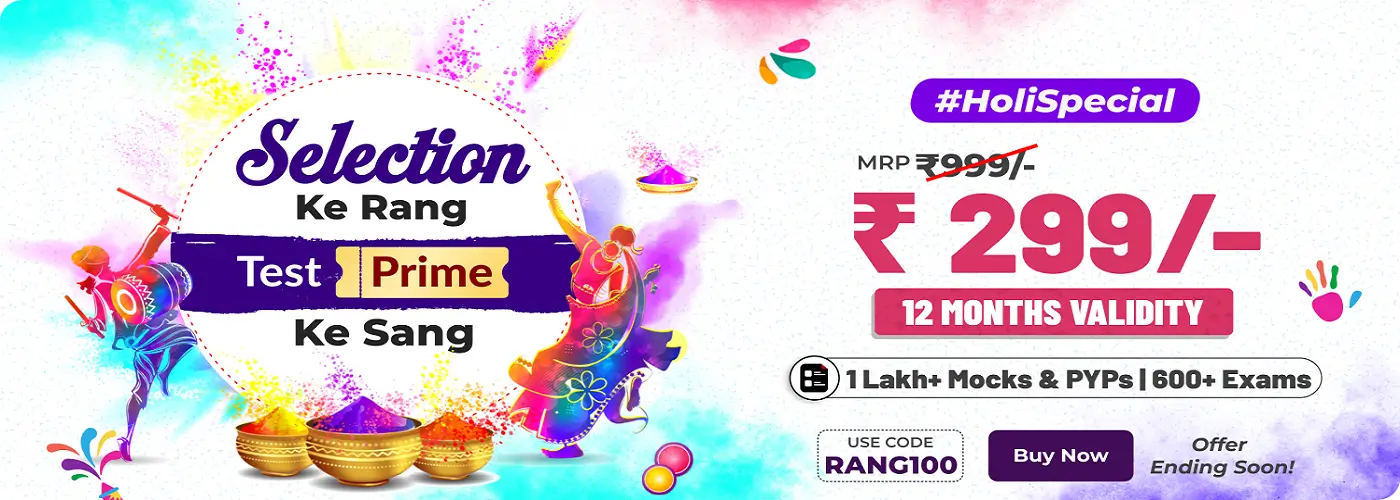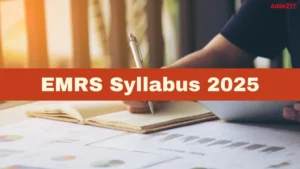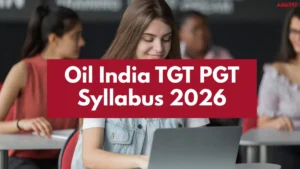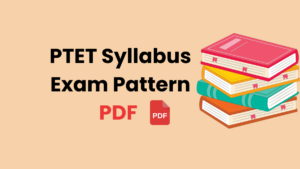Table of Contents
The West Bengal School Service Commission (WBSSC) has released the official WB Upper Primary TET Syllabus and Exam Pattern 2025 on its website, www.westbengalssc.com. The exam is designed for candidates aiming to become teachers for classes V to VIII in government and government-aided schools across West Bengal. Aspirants must carefully review the subject-wise syllabus and paper structure to plan their preparation effectively.
WB Upper Primary Syllabus 2025
The WB Upper Primary TET Exam is a crucial step for graduates holding a B.Ed. Qualifications who want to secure teaching positions in upper primary schools. Each section is designed to assess not just subject knowledge but also teaching aptitude and pedagogy, ensuring candidates are classroom-ready. The syllabus focuses on five main sections:
- Child Development and Pedagogy
- Language I (English)
- Language II (Bengali)
- Mathematics and Science (for candidates applying as Maths/Science teachers)
- Social Studies/Social Science (for candidates applying as Social Studies teachers)
WB Upper Primary Exam Pattern 2025
The WB Upper Primary TET Paper II is conducted for classes VI to VIII. The exam has 150 multiple-choice questions carrying 1 mark each. Candidates get 2 hours and 30 minutes to complete the paper. There is no negative marking. This structure ensures candidates are evaluated on both core subject knowledge and essential teaching skills.
| WB Upper Primary Exam Pattern 2025 | ||
| Section | Questions | Marks |
| Child Development and Pedagogy (Compulsory) | 30 | 30 |
| Language I: English (Compulsory) | 30 | 30 |
| Language II: Bengali (Compulsory) | 30 | 30 |
| Mathematics & Science (For Maths/Science Teachers) | 60 | 60 |
| Social Studies (For Social Studies Teachers) | 60 | 60 |
| Total | 150 | 150 |
WB Upper Primary Syllabus Detailed
1. Child Development and Pedagogy (30 Questions)
- Child development concepts and their relationship with learning
- Principles of child development
- Influence of heredity and environment
- Socialization processes and the role of teachers, parents, and peers
- Theories by Piaget, Vygotsky, and Kohlberg
- Inclusive education and children with special needs
- Learning processes, pedagogy, problem-solving, and motivation
2. Language I – English (30 Questions)
- Reading comprehension (prose, drama, poetry)
- Grammar and vocabulary-based questions
- Pedagogy of language development
- Role of listening, speaking, reading, and writing skills
- Teaching challenges in multilingual classrooms
- Language acquisition principles and remedial teaching
3. Language II – Bengali (30 Questions)
- Reading comprehension passages (literary, narrative, scientific, or discursive)
- Grammar and vocabulary questions
- Pedagogy of language learning
- Language functions in communication
- Addressing errors and challenges in language classrooms
- Assessment of language skills and remedial strategies
4. Mathematics & Science (60 Questions)
- Mathematics Content: Algebra, Geometry, Ratio & Proportion, Symmetry, Mensuration, Data Handling, Constructions, and Pedagogical Issues.
Science Content: Food, Materials, Living World, Motion, Electricity, Natural Phenomena, Resources, and Pedagogical Issues.
5. Social Studies (60 Questions)
- History: Earliest societies, first farmers, kingdoms, empires, new ideas, contacts with distant lands.
- Geography: Resources, agriculture, environment.
- Civics/Political Science: Diversity, democracy, government, local governance, constitution, justice, gender, and media.
- Pedagogy: Critical thinking, project work, classroom processes, and evaluation methods.




 EMRS Syllabus 2026, Check Tier 2 Exam Pa...
EMRS Syllabus 2026, Check Tier 2 Exam Pa...
 Oil India TGT PGT Syllabus 2026, PDF Dow...
Oil India TGT PGT Syllabus 2026, PDF Dow...
 Rajasthan PTET 2026 Syllabus, Check Exam...
Rajasthan PTET 2026 Syllabus, Check Exam...













